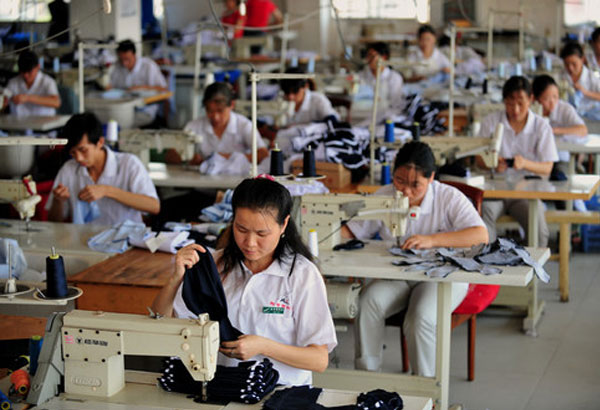MANILA, Philippines — Economists have upgraded the projected economic growth this year after a stronger-than-expected expansion in the third quarter.
Pauline May Ann Revillas, research analyst at Metropolitan Bank & Trust Co., said the bank upgraded its gross domestic product (GDP) growth forecast to 6.8 percent instead of 6.6 percent this year.
“Growth will be supported by pickup in household spending (in time for the holiday season), sustained growth in government spending, robust industry and services sectors, and continued strong expansion of the export sector,” she said.
The country’s GDP grew faster than expected at 6.9 percent in the third quarter from the revised 6.7 percent in the second quarter. This is the 75th straight quarter that the Philippines posted positive GDP growth.
This brought the GDP expansion in the first nine months of the year to 6.7 percent, slightly higher than the low end of the 6.5 to 7.5 percent target set by economic managers.
Revillas said sustained infrastructure outlays would boost investment spending moving forward.
“The fiscal performance of the government bodes well for the economy, with the spending numbers so far lending credibility to the government’s infra plans and could likely translate to sustained higher GDP growth,” she said.
Revillas said the risks to the domestic economy nevertheless remain amid the effects of the still diverse global economic growth and impact of financial market volatilities.
ING Bank Manila senior economist Joey Cuyegkeng said the Dutch financial giant upgraded its full year forecast to 6.7 instead of 6.6 percent for this year.
For the fourth quarter, he said the GDP is seen expanding by 6.7 percent after a faster than consensus growth in the third quarter.
BMI Research, meanwhile, lifted its GDP growth forecast to 6.7 instead of 6.3 percent for 2017 but is maintaining its forecast of 6.3 percent for 2018
“Leading financial market indicators and waning reform momentum suggests that growth has likely peaked in the near term. That said, we expect growth to average above six percent over the medium term, which is still a solid figure by regional and historical perspectives,” it said.
The research arm of the Fitch Group said leading indicators such as equity market trends are showing signs of fatigue while the Philippine peso has been one of the worst performing currencies in Asia year-to-date from a short term perspective.
“This signals weak investor sentiment which is likely to act as a headwind to further growth acceleration,” Fitch Group said.
BMI Research said the economic growth averaging 6.5 percent in the last five years under the Aquino administration is sputtering as President Duterte shifted his attention to the war on drugs, and more recently the war against terrorism in the Southern Philippines.
“Although we remain positive on the Philippine economy over the medium term, underpinned by strong demographic trends supporting savings, Duterte’s Build Build Build strategy, and deeper economic ties with China and Japan, risks are increasingly weighted to the downside as the business environment deteriorates,” it said.


